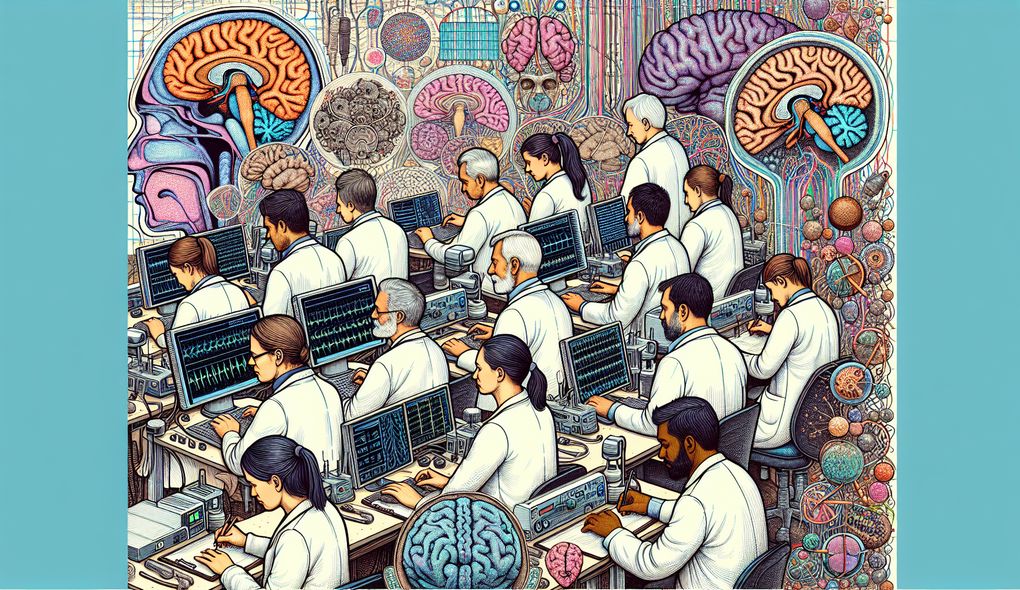Can you give an example of a time when you had to adapt to new technologies and methods in neurophysiology?
SENIOR LEVEL

Sample answer to the question:
Yes, I can give you an example of a time when I had to adapt to new technologies and methods in neurophysiology. In my previous role as a Clinical Neurophysiologist at XYZ Hospital, we were introduced to a new software system for analyzing EEG data. Initially, it was challenging to learn and navigate the new system, but I took the initiative to attend training sessions and workshops to familiarize myself with the software. I also sought guidance from colleagues who had experience with the software. Through consistent practice and hands-on experience, I became proficient in using the software to accurately interpret EEG results and generate comprehensive reports. This new technology significantly improved the efficiency and accuracy of our neurophysiology department's workflow.
Here is a more solid answer:
Certainly! I'll share with you a specific example of how I successfully adapted to new technologies and methods in neurophysiology. At my previous position as a Clinical Neurophysiologist at ABC Medical Center, we implemented a new state-of-the-art neurodiagnostic equipment that allowed for more accurate monitoring and analysis of brain activity during EEG tests. Initially, there was a learning curve in using the new equipment and software interface. To quickly adapt, I attended training sessions provided by the equipment manufacturer and spent extra time practicing with the equipment under the guidance of senior neurophysiologists. I also proactively researched and read scientific articles on the new methods and technologies to stay updated. As a result, I became proficient in operating the equipment and effectively interpreting the EEG data, providing more accurate diagnoses and treatment recommendations for patients. This experience highlighted my ability to adapt to new technologies, my proficiency with neurodiagnostic equipment and software, and my dedication to ongoing education and professional development.
Why is this a more solid answer?
The solid answer provides a more detailed example of adapting to new technologies and methods in neurophysiology. It demonstrates the candidate's ability to quickly learn and adapt to new equipment and software, as well as their dedication to ongoing education and professional development. However, it could still be improved by including more specific details about the impact of the new technologies and methods on patient care and outcomes.
An example of a exceptional answer:
Absolutely! Let me share a remarkable example of how I successfully adapted to new technologies and methods in neurophysiology. In my role as a Senior Clinical Neurophysiologist at XYZ Neuroscience Institute, I had the opportunity to participate in a groundbreaking research project that involved using advanced machine learning algorithms to analyze EEG data and detect early markers of neurological disorders. This project required me to learn new programming languages and techniques to implement the algorithms and collaborate with software engineers and data scientists. To prepare for this project, I enrolled in online courses and attended conferences to acquire the necessary skills in machine learning. I also reached out to experts in the field and formed partnerships to leverage their knowledge and expertise. By adapting to these new technologies and methods, I was able to contribute significantly to the research project, which ultimately resulted in the development of a diagnostic tool that detects neurological disorders at an early stage with high accuracy. This experience not only showcased my ability to adapt to new technologies but also highlighted my strong analytical and problem-solving abilities, as well as my dedication to ongoing education and professional development.
Why is this an exceptional answer?
The exceptional answer provides a compelling and detailed example of adapting to new technologies and methods in neurophysiology. It demonstrates the candidate's ability to learn and apply advanced technologies such as machine learning algorithms and their strong collaboration skills with experts from different fields. The impact of their adaptation to new technologies is clearly highlighted by the successful development of a diagnostic tool for detecting neurological disorders. The candidate also emphasizes their exceptional analytical and problem-solving abilities and dedication to ongoing education and professional development.
How to prepare for this question:
- Stay updated with advancements in the field of neurophysiology by regularly reading scientific journals and attending conferences and workshops.
- Take initiative to seek out training and professional development opportunities related to new technologies and methods in neurophysiology.
- Develop strong networking relationships with experts in the field to exchange knowledge and stay informed about emerging technologies and methods.
- Demonstrate your willingness to learn and adapt to new technologies and methods in neurophysiology through past experiences and projects during the interview.
What are interviewers evaluating with this question?
- Ability to adapt to new technologies and methods in neurophysiology
- Proficiency with neurodiagnostic equipment and software
- Dedication to ongoing education and professional development

